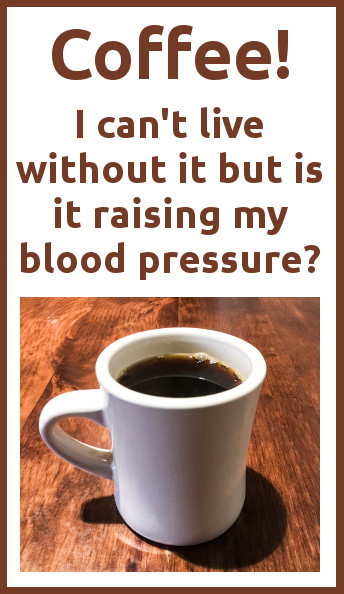What to Drink to Lower Blood Pressure
What can I drink to lower my blood pressure?

Photos by Joy, Keith Williamson, Breville USA, and nicehotcupofT, on flickr.com
Guidance on lowering blood pressure often tends to focus on the foods that you can eat which lower blood pressure. Or the foods which you should avoid if you want to lower your blood pressure. But what about drinks? What you drink can have a significant effect on your blood pressure. So what to drink to lower blood pressure?
Well, the main thing is that you need to drink plenty. For healthy blood pressure, you need to be well hydrated at all times.
Even slight dehydration raises blood pressure. Not getting enough fluids reduces your blood volume and makes your blood thicker. The blood vessels constrict to conserve water in the blood and the heart has to work harder to pump it around. Not good.
So to start with, you can drink more water. Most of us don’t drink enough. 7-8 glasses of water a day is often recommended by health practitioners, though of course it depends on your size and lifestyle. (If you’re in hot weather and/or very active then you’ll likely need more fluids).
Super drinks to lower blood pressure?
However, there are also plenty of other healthy drinks you can take instead of, or as well as, water to keep you hydrated. Many of these also have specific benefits for blood pressure. After all, you’ve probably heard all about so-called superfoods in the media – foods that are so high in certain nutrients that they’re extra good for you. But what about superdrinks? Are there superdrinks which can help you lower your blood pressure? Yes, there are. Here’s just a handful to start with.
Hibiscus tea
Like berries and other red foods, hibiscus contains many anthocyanins and other substances with blood pressure-lowering properties. Scientists have now found that drinking a few cups of hibiscus tea a day can signficantly reduce high blood pressure. Get the kettle on!
Beetroot juice
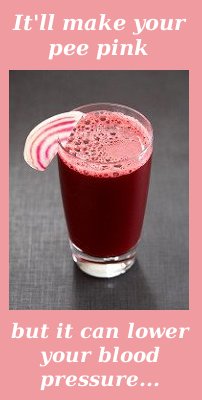 Here’s another red drink which can reduce high blood pressure and even prevent it from developing in the first place.
Here’s another red drink which can reduce high blood pressure and even prevent it from developing in the first place.
Beetroot juice or beet juice (depending on which side of the Pond you live on) is rich in nitrates, which your body turns into nitric oxide, which keeps your blood vessels nice and dilated.
Beets also have anti-inflammatory properties. This is also useful as it’s increasingly recognised that chronic inflammation is linked to high blood pressure.
All the details here: Can I lower my blood pressure with beetroot juice?
Coconut water
Can coconut water help reduce high blood pressure? Yes it can. This is because it contains lots of salts and electrolytes – the substances your body needs to keep a good balance of fluids. As such, it’s also great for quenching your thirst after exercise or on a hot day.
Coconut water is also full of potassium, magnesium and vitamin C, all of which are important for healthy blood pressure.
Studies are now finding that even drinking a couple of glasses of coconut water each day can lower blood pressure. You can usually find it in health food shops, and regular shops are now stocking it more too. Just make sure it’s pure coconut water and not just coconut-flavoured and full of added sugars.
Juices and smoothies
Many fruits and vegetables have excellent blood pressure-lowering properties. And if you have a blender, you can chuck a load of these in and make them into a smoothie to drink.
Juicing is another way to do it, although juicers are very expensive, and you lose all the fibre from the fruits and vegetables.
So on balance, when it comes to what to drink to lower blood pressure, making smoothies is a healthier option, as well as a cheaper one!
Tea (black, green, rooibos)
 Drinks that lower blood pressure are not limited to these more obscure or exotic drinks. Even just drinking a couple of cups of normal black tea a day can lower your blood pressure, as well as your risk of heart attack and stroke.
Drinks that lower blood pressure are not limited to these more obscure or exotic drinks. Even just drinking a couple of cups of normal black tea a day can lower your blood pressure, as well as your risk of heart attack and stroke.
Tea contains many antioxidants (particularly flavonoids) which help lower cholesterol levels and improve the health of your arteries and heart, amongst other things.
You might be wondering about the caffeine in tea though. Surely caffeine raises blood pressure? Yes, it does. So if you drink a lot of black tea, it might be worth switching to green tea some of the time. Green tea has less caffeine and more antioxidants. It’s definitely a ‘superdrink’ in terms of its multiple health benefits.
Rooibos tea also contains antioxidants yet is without caffeine so another good bet.
Also, if you’re a big coffee drinker, then try replacing some of your daily cups of coffee with a cup of tea. You’ll still get a wee buzz but tea has a refreshing clearness – good for the body and the mind!
Wine
Red wine has long been considered to be good for the heart and circulation. It contains many antioxidants, including resveratrol. These both protect the lining of the blood vessels and help them relax and dilate (through increasing nitric oxide production). All this promotes good blood flow and lower blood pressure.
 It has also been well documented that the French nation enjoys better cardio-vascular health than many other nations in the developed world. And this despite their fondness for culinary treats that are not exactly ‘health food’. This ‘French Paradox’ has largely been explained by their habit of drinking good red wine everyday with their main meal.
It has also been well documented that the French nation enjoys better cardio-vascular health than many other nations in the developed world. And this despite their fondness for culinary treats that are not exactly ‘health food’. This ‘French Paradox’ has largely been explained by their habit of drinking good red wine everyday with their main meal.
Resveratrol comes from the skin of red grapes so you can also get it by eating red grapes or drinking red grape juice (those red drinks again!). However, getting it via red wine is better because the alcohol in wine extracts and dissolves the resveratrol making it easier for your body to absorb.
Booze in general
What if you don’t like red wine but still like a drink? Well, it’s now established that some of the health benefits of red wine are also due simply to its alcohol content. Medical research does now show that moderate alcohol consumption is linked to lower risk of heart and cardiovascular problems.
There’s a couple of reasons for this. One is that alcohol helps increase the healthy type of cholesterol (high density lipoproteins) while protecting your arteries from damage from the unhealthy type (low density lipoproteins). The other is that it reduces the likelihood of blood clots forming (which can also cause strokes).
Moderate is the key word here. Drinking too much is bad for your blood pressure, as well as putting you at risk of many other health problems. (And that’s not even counting the hangover…)
What not to drink to lower blood pressure
So now you know how to drink your way to lower blood pressure 😉
However, the flip side of this is that there are also drinks that you need to avoid if you want to lower your blood pressure. It’s all very well eating healthy foods. But if you’re pouring loads of unhealthy drinks down your neck every day, then that’s going to definitely impact on your efforts at healthy eating.
So what not to drink? Well, ditch sodas and soft drinks (pop) for a start. They’re full of artificial sugars – and these are pretty much the worst things you can have for your blood pressure. If you’re not already aware of this, please read our article here: Sugar and high blood pressure
Soft drinks and sodas also often contain a lot of phosphorus which can deplete your body of calcium (essential for healthy blood pressure).
Even seemingly healthy drinks liked iced tea can be full of added sugars. So always check the label. And if in doubt, just make it yourself. Tea, ice, lemon, a touch of honey or maple syrup – tastier and healthier 🙂
And don’t kid yourself that drinks with artificial sweeteners are better. Aspartame has been linked to cancer and sweeteners like Mannitol and Sorbitol are converted by your liver into fructose which is particularly bad for you and your blood pressure.
So always check the labels of drinks to make sure they’re not full of sugars and sweeteners. If in doubt, stick to the drinks mentioned here!
What to drink to lower blood pressure, as well as what to eat, and what else you can do…
The drinks listed here are just some of the drinks that help lower blood pressure. However, they’re not the only ones. For more ideas on what to drink to lower blood pressure, you could consider getting a copy of our book: Lower Your Blood Pressure Naturally – The Complete 9 Step Guide.
 In this guide, we cover a range of other drinks which can lower blood pressure. And for the drinkers among you, we also give tasty tips on healthier alcoholic drinks you can have or make.
In this guide, we cover a range of other drinks which can lower blood pressure. And for the drinkers among you, we also give tasty tips on healthier alcoholic drinks you can have or make.
If your blood pressure is only slightly too high, then changing what you drink could make enough difference. However, if you’re blood pressure is really quite high then it’s likely you’re going to have to make a few more changes.
What you eat is of course extremely important. You are what you eat. And if you eat well, you can be well. Thankfully our guide covers many foods which are delicious as well as nutritious – so eating well can be a pleasure not a pain.
Being more active is another major factor in achieving and maintaining healthy blood pressure. But if you’re not a gym fanatic or yoga enthusiast, don’t worry. Our guide covers plenty different ways in which you can get yourself fitter, including one blood pressure-lowering exercise which you can do sitting on your sofa.
Relaxation – good deep relaxation – and generally getting your stress levels down is the final piece of the puzzle. Chronic stress contributes to high blood pressure (and poor health in general) and our guide gives you a variety of methods you can use to reduce stress and properly relax.
If you’re feeling a bit overwhelmed by all this, don’t worry. Our guide is clearly laid out in nine easy-to-follow steps. You’re given simple guidelines which you can follow entirely at your own pace. And there’s more detailed information in the appendices (along with recipe ideas) for those who want it.
The main thing is that lowering your blood pressure naturally can be enjoyable. Let us guide you through it 🙂
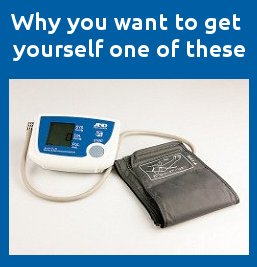
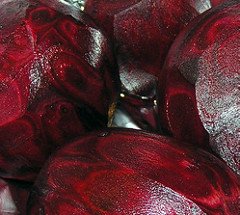 Beets also contain “betaine” – a nutrient which helps protect cells from stress and toxins (e.g., caused by pollution) and which reduces inflammation (inflammation is now thought to be a key factor in high blood pressure, and indeed many common modern diseases).
Beets also contain “betaine” – a nutrient which helps protect cells from stress and toxins (e.g., caused by pollution) and which reduces inflammation (inflammation is now thought to be a key factor in high blood pressure, and indeed many common modern diseases).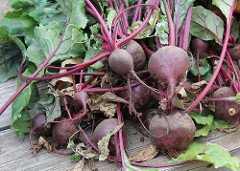 No you don’t have to drink beet juice for lower blood pressure. You can get the same beet benefits by eating beetroot and/or by eating other foods which are rich in nitrates, such as leafy greens like kale, cabbage, spinach, lettuce, and leeks, string beans, carrots…
No you don’t have to drink beet juice for lower blood pressure. You can get the same beet benefits by eating beetroot and/or by eating other foods which are rich in nitrates, such as leafy greens like kale, cabbage, spinach, lettuce, and leeks, string beans, carrots… Thus, to get a more well-defined answer, you are going to need to understand what modern experts are saying.
Thus, to get a more well-defined answer, you are going to need to understand what modern experts are saying.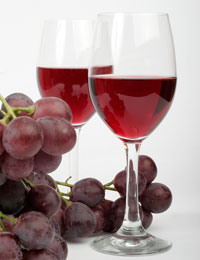 It has been documented that the French nation enjoy better health all around and lower rates of high blood pressure and coronary disease than many other nations. This is partly due to their healthy diet. However it’s also due to their habit of drinking red wine on a daily basis. So what’s the link between lower rates of hypertension and red wine?
It has been documented that the French nation enjoy better health all around and lower rates of high blood pressure and coronary disease than many other nations. This is partly due to their healthy diet. However it’s also due to their habit of drinking red wine on a daily basis. So what’s the link between lower rates of hypertension and red wine?


